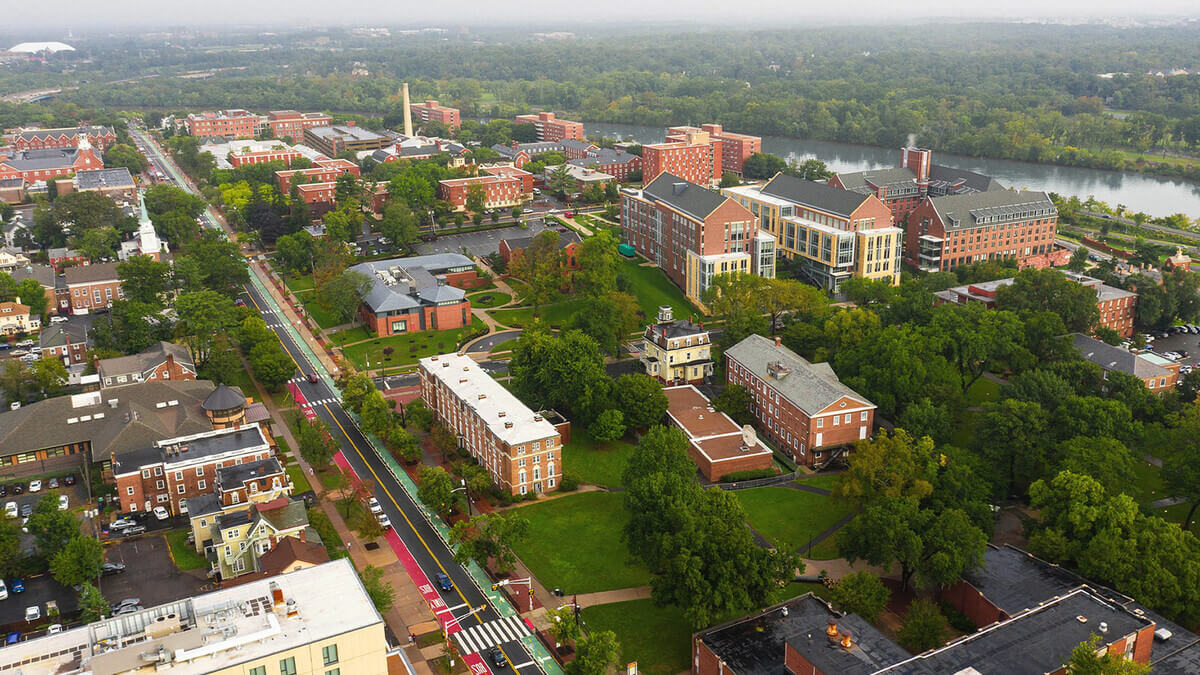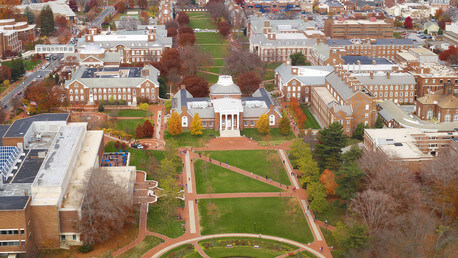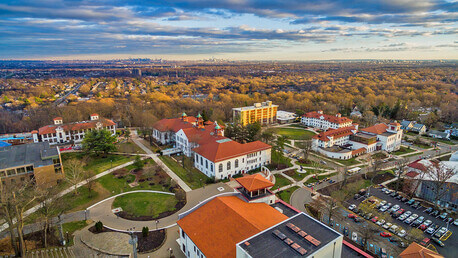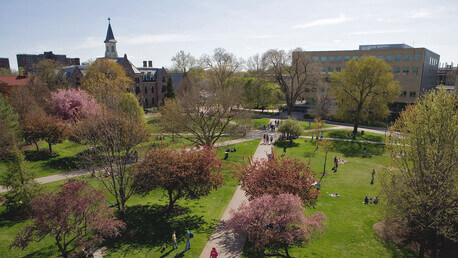


Rutgers University-New Brunswick
Overview
Standing among the nation's leading research universities, Rutgers University–New Brunswick is acclaimed for the excellent achievements of its people and for their contributions to society in the pursuit of education, research, and health care. Achieve your excellence through our 120+ majors, 175+ research centers, 750+ student organizations, and cultural and global experiences. Plus, with our prime location, 90 minutes or less from New York City and Philadelphia, you have access to the world's top employers and internships. Your story starts here!
Tuition, Cost & Aid
Affordability & Cost
Discover how military service can help you pay for college
Explore Military Pathways| In-State Tuition In-state tuition is the tuition charged by institutions to those students who meet the state's or institution's residency requirements. In-district tuition is the tuition charged by the institution to those students residing in the locality in which they attend school and may be a lower rate than in-state tuition if offered by the institution. | $17,239 |
| Out-of-State Tuition Out-of-state tuition is the tuition charged by institutions to those students who do not meet the state’s or institution’s residency requirements. Out-of-district tuition is the tuition charged by the institution to those students not residing in the locality in which they attend school. | $36,001 |
Room and Board The weighted average for room and board and other expenses is generated as follows:
| $14,715 |
| Books and Supplies | $1391 |
Aid & Grants
Student Loans
Admissions
Key Admissions Stats
- Not for Profit
- Coed
Need Aware
This school may consider an applicant’s financial situation when deciding admission
Admissions Requirements
Important Deadlines
| Application Type | Application Deadline | Reply Deadline |
|---|---|---|
| Early Action Acceptance is not binding, but student will receive admissions decision earlier. | November 1 | June 1 |
| Fall Regular Decision | December 1 | June 1 |
Rolling Admissions
The college has rolling admissions, which means applications are accepted any time throughout the year.
Admitted Student Stats
Admissions Resources
Academics
Key Academic Stats
- Online Classes
- Online Undergrad Degrees
- Summer Sessions
- Combined Institution Double Degree Programs
- Some Programs Requires Co-Op/Internship
- ROTC Army
- ROTC Air Force
- Study Abroad
- Honors Program
- Teacher Certification Offered
Degrees and Majors
Majors
| A B M D | |
|---|---|
| AGRICULTURAL/ANIMAL/PLANT/VETERINARY SCIENCE AND RELATED FIELDS | |
| ARCHITECTURE AND RELATED SERVICES | |
| AREA, ETHNIC, CULTURAL, GENDER, AND GROUP STUDIES | |
| BIOLOGICAL AND BIOMEDICAL SCIENCES | ✓ ✓ ✓ ✓ ✓ ✓ ✓ ✓ ✓ ✓ ✓ ✓ ✓ ✓ ✓ ✓ ✓ ✓ ✓ ✓ |
| BUSINESS, MANAGEMENT, MARKETING, AND RELATED SUPPORT SERVICES | |
| COMMUNICATION, JOURNALISM, AND RELATED PROGRAMS | |
| COMPUTER AND INFORMATION SCIENCES AND SUPPORT SERVICES | |
| EDUCATION | |
| ENGINEERING | ✓ ✓ ✓ ✓ ✓ ✓ ✓ ✓ ✓ |
| ENGINEERING/ENGINEERING-RELATED TECHNOLOGIES/TECHNICIANS | |
| ENGLISH LANGUAGE AND LITERATURE/LETTERS | |
| FOREIGN LANGUAGES, LITERATURES, AND LINGUISTICS | ✓ ✓ ✓ ✓ ✓ ✓ |
| HEALTH PROFESSIONS AND RELATED PROGRAMS | ✓ ✓ ✓ ✓ ✓ ✓ ✓ ✓ ✓ ✓ |
| HISTORY | ✓ ✓ ✓ |
| HOMELAND SECURITY, LAW ENFORCEMENT, FIREFIGHTING AND RELATED PROTECTIVE SERVICES | |
| LIBRARY SCIENCE | |
| MATHEMATICS AND STATISTICS | ✓ ✓ ✓ ✓ ✓ ✓ |
| MULTI/INTERDISCIPLINARY STUDIES | |
| NATURAL RESOURCES AND CONSERVATION | |
| PARKS, RECREATION, LEISURE, FITNESS, AND KINESIOLOGY | |
| PHILOSOPHY AND RELIGIOUS STUDIES | |
| PHYSICAL SCIENCES | |
| PSYCHOLOGY | |
| PUBLIC ADMINISTRATION AND SOCIAL SERVICE PROFESSIONS | |
| SOCIAL SCIENCES | |
| VISUAL AND PERFORMING ARTS | ✓ ✓ ✓ ✓ ✓ |
Faculty Overview
Campus Life
Key Campus Stats
Housing
Athletics
- Baseball
- Basketball
- Cross Country
- Football
- Golf
- Lacrosse
- Soccer
- Track and Field
- Wrestling
- Basketball
- Cross Country
- Crew-Rowing
- Field Hockey
- Golf
- Gymnastics
- Lacrosse
- Soccer
- Softball
- Swimming
- Tennis
- Track and Field
- Volleyball
Campus Safety
After Graduation
Post Grad Stats
REVIEWS
Read What Students Are SayingSimilar Colleges
 Philadelphia, PA
Philadelphia, PA University Park, PA
University Park, PA Philadelphia, PA
Philadelphia, PA Newark, DE
Newark, DE Boston, MA
Boston, MA Boston, MA
Boston, MA Montclair, NJ
Montclair, NJ Newark, NJ
Newark, NJ South Orange, NJ
South Orange, NJ Ewing, NJ
Ewing, NJ Ithaca, NY
Ithaca, NY New York, NY
New York, NY